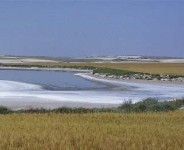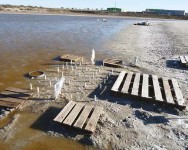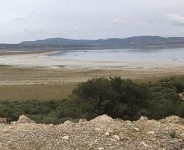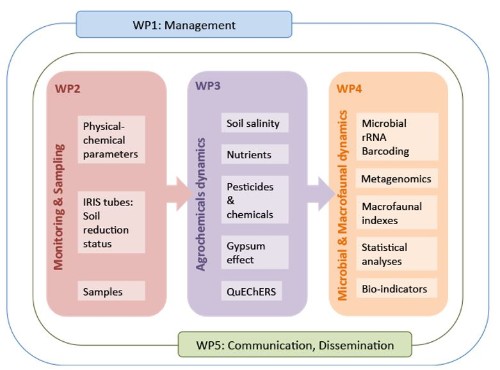AQUASALT - ERANETMED3-173 3/06/2018 – 30/06/2022
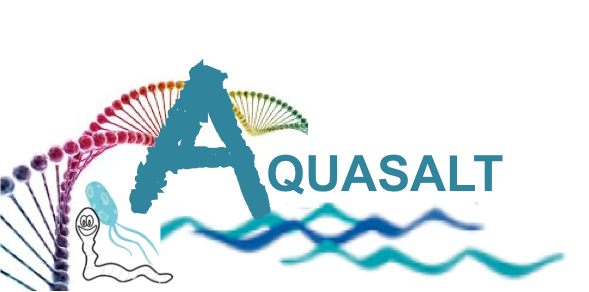
Agriculture effects on inland saline water bodies and on lake/laguna hydrological complexes
Agriculture in arid and semiarid areas involves the management of water scarcity and salinity – salinization. The AQUASALT project focus on the elaboration and interpretation of data collected in the field. The main objectives are to characterize the impact of agricultural activities on microbial communities and determine a set of indicators for assessing the environmental health in such saline/arid environments. Activities will be performed at the Central Ebro Valley (Spain), Gallocanta and Monegros (RAMSAR protected areas under Birds and Habitats Directives) and at the Ichkeul Lake/Bizerte Lagoon (Tunisia) hydrological complex (RAMSAR and UNESCO protected area).
The specific objectives of AQUASALT includes to:
- Determine the seasonal changes of soil/water salinity distribution in two Mediterranean arid areas.
- Determine the salinity trends in irrigated lands and the agricultural pollutants inputs following the dynamics of nutrients (N, P) and pesticides in range of agricultural saline and gypsum soils around the waters.
- Characterize the microbial communities dynamics according to agricultural activities and seasonal variations.
- Establish relevant indicators including microbial and macrofaunal bio-indicators adapted to the natural occurrence of salinity in arid basins. Such bio-indicators would report on the effects of agricultural activities in natural saline areas, useful information for the management of saline wetlands.
The AQUASALT structure follows the workflow of environmental characterisation (WP2-4). The whole project is driven by water management preoccupation with the focus to develop bio-indicators for water and more generally environment quality status assessment.
WP2 Site monitoring and sampling aiming to select sampling sites and design the seasonal sampling for piezometric data and redox soil conditions as base data for the subsequent seasonal sampling of soil and water.
WP3 Agrochemicals dynamics aiming to demonstrate the status of saline wetlands currently affected by agricultural waters in a range of saline waters under different agrochemical conditions.
WP4 Microbial and macrofaunal dynamics aiming to establish molecular inventory of microbial populations and macrofaunal indexes in order to define microbial bio-indicators for environmental quality assessment
The expected outputs of AQUASALT such as bio-indicators will provide the opportunity for the implementation of new management approaches. AQUASALT would enhance innovation capacity by exploring the microbial communities in extreme environments, hypersaline and saline fluctuating waters, which represent yet untapped environments for the exploitation of the microbial biodiversity offering biotechnology perspectives.
Coordinator
Prof. Robert Duran
IPREM, Université de Pau et des Pays de l'Adour, FRANCE
Partners
Dr. Carmen Castañeda
Estación Experimental de Aula Dei (EEAD) Zaragoza, Consejo Superior de Investigaciones Cientificas (CSIC), SPAIN
Prof. Ezzeddine Mahmoudi
Faculté de Sciences de Bizerte, Laboratoire de Biosurveillance de l'Environnement (LBE), TUNISIA
Prof. Bensouilah Mourad
Université Badji Mokhtar de Annaba, Laboratory of ecobiology for marine environment and coastlines (EMMAL), ALGERIA
Prof. Naïma El Ghachtouli
Université Sidi Mohamed Ben Abdellah de Fès, Laboratoire de Biotechnologie Microbienne (LMB), MAROCCO
Collaborators
Prof. James R. Kahn
Washington and Lee University (WLU), Environmental Studies Program, USA
Prof. Martin C. Rabenhorst
University of Maryland(UM), Department of Environmental Science and Technology, USA
Associate participants
CHE
Confederación Hidrográfica del Ebro, Environmental agency, SPAIN
DGA
Dirección General de Sostenibilidad del Gobierno de Aragón, SPAIN
ANPE
Agence Nationale de Protection de l'Environnement, Environmental agency, TUNISIA
DGCPQA
Direction Générale de la Protection et du Contrôle de la Qualité des Produits Agricoles, TUNISIA



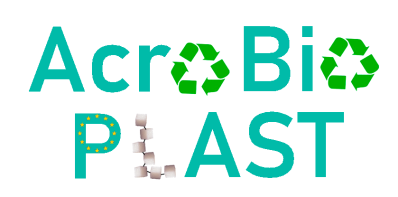





_75x380.png)


